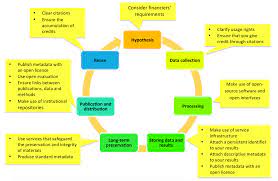The Power of Open Research in Science
In the world of science, open research is revolutionising the way knowledge is shared, collaborated on, and advanced. Open research refers to the practice of making scientific research and data accessible to everyone, without restrictions or barriers.
One of the key benefits of open research is its ability to accelerate scientific progress. By sharing findings openly, researchers can build upon each other’s work more effectively, leading to faster discoveries and breakthroughs. This collaborative approach fosters innovation and drives the development of new ideas and technologies.
Moreover, open research promotes transparency and reproducibility in science. When data and methodologies are openly available, other researchers can verify results and ensure the reliability of findings. This enhances the credibility of scientific research and helps to build trust within the scientific community and among the general public.
Open research also has a democratizing effect on science by making knowledge more accessible to a wider audience. Researchers from all around the world, regardless of their affiliations or resources, can benefit from open access to data and publications. This inclusivity promotes diversity in scientific perspectives and contributes to a more equitable distribution of knowledge.
As we move towards an increasingly interconnected world, embracing open research practices becomes crucial for driving scientific innovation and addressing global challenges. By breaking down traditional barriers to information sharing, open research empowers researchers to collaborate more effectively, accelerate discovery processes, and ultimately advance our collective understanding of the world around us.
“Demystifying Open Source in Scientific Research: A Comprehensive Overview”
3. “The Legality of Sci-Hub Usage: Navigating Copyright and
- Is ScienceOpen free?
- What is open source for scientific research?
- Is it legal to use Sci-Hub?
- Is scientific research open access?
Is ScienceOpen free?
ScienceOpen offers both free and premium services to users. The platform provides free access to a wide range of open research content, including articles, publications, and data. Users can explore and engage with this content without any cost. Additionally, ScienceOpen offers premium services for researchers and institutions who wish to enhance their visibility, promote their work, and access advanced features on the platform. These premium services come with additional benefits and functionalities that cater to specific needs within the research community.
What is open source for scientific research?
Open source for scientific research refers to the practice of making scientific data, methodologies, and findings freely available to the public without restrictions. It involves sharing research outputs in a transparent and accessible manner, allowing other researchers to scrutinize, replicate, and build upon the work. Open source in scientific research promotes collaboration, innovation, and reproducibility by fostering a culture of sharing and openness within the scientific community. This approach not only accelerates the pace of discovery but also enhances the credibility and trustworthiness of scientific findings. By embracing open source principles, researchers can contribute to a more inclusive and impactful research ecosystem that benefits society as a whole.
Is it legal to use Sci-Hub?
When it comes to the question of whether it is legal to use Sci-Hub, the answer is not straightforward. Sci-Hub is a controversial platform that provides free access to millions of research papers and articles that are typically behind paywalls. While accessing research papers through Sci-Hub may seem convenient for those who do not have institutional access, it is important to note that the legality of using Sci-Hub varies depending on the country and jurisdiction. Many publishers consider Sci-Hub to be infringing on copyright laws, as it provides access to copyrighted material without permission. Researchers and academics are encouraged to familiarise themselves with copyright laws and institutional policies regarding the use of such platforms to ensure compliance with legal requirements.
Is scientific research open access?
The concept of open access in scientific research refers to the practice of making research findings and data freely available to the public without restrictions. While not all scientific research is open access, there has been a growing movement towards promoting transparency and accessibility in the academic community. Many funding agencies, institutions, and journals now encourage or mandate researchers to make their work openly accessible to maximise its impact and benefit society as a whole. Embracing open access principles can lead to increased collaboration, faster dissemination of knowledge, and greater innovation in the scientific field.

No Responses